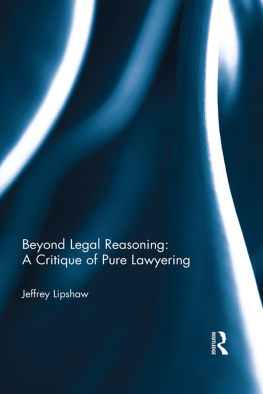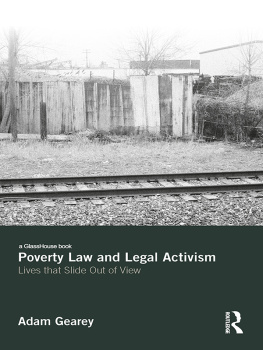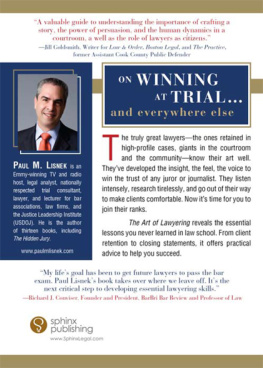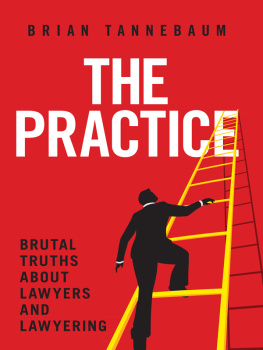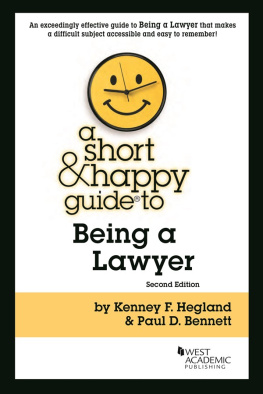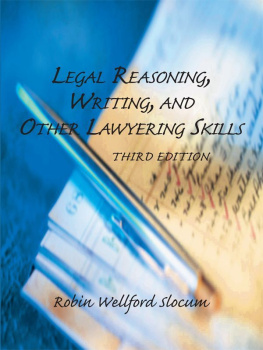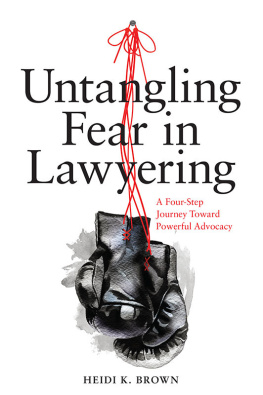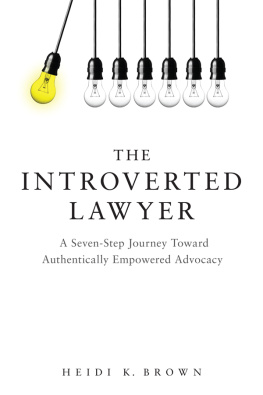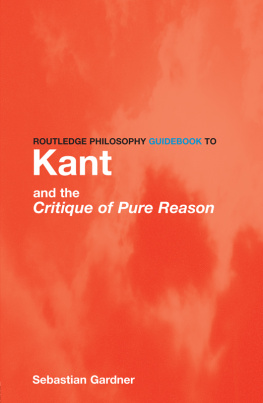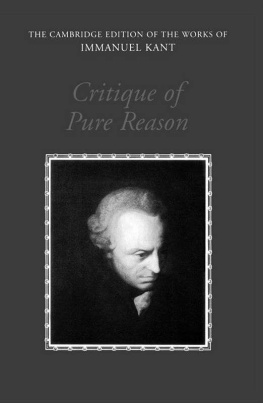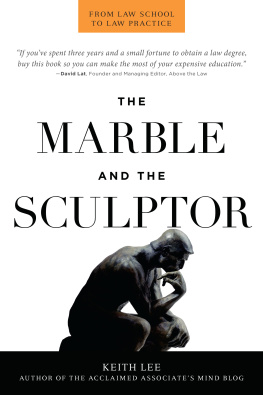Jeffrey Lipshaw combines acute legal and philosophical analysis with prodigious legal experience to explain to us both how lawyers do think and how they should think. He makes clear why lawyering needs a fundamental transformation, and starts us down the path to achieving it. Anyone perplexed or angered by the role of lawyers and lawyering in modern society should read this book.
Professor Barry Schwartz, author of Why We Work and
co-author of Practical Wisdom
Jeffrey Lipshaw draws on long experience, first in corporate legal practice, then in teaching, to offer a unique and invaluable guide to legal reasoning: its use in practice and, more importantly, its limits. I would advise all law students who are considering a career in transactional law to read it right away.
Professor Brian Bix, University of Minnesota, USA
Professor Jeffrey Lipshaw, who practiced law for more than 26 years, has written a great and timely bookcalling to mind Karl Llewellyns efforts to champion the grand tradition of law as against the formal style. Lipshaw leads the reader to recognize that if lawyering is to have any real value, it must shed its narrow self-image as weaponized reason, and achieve self-awareness to understand its language within broader moral, social, and philosophical contexts. It must in short understand itself as not merely a technical profession, but a liberal arts vocation.This is a distinctive and learned book with a breezy earnest style all its own. Law students should read this after the 1L year, lawyers and academics at any time, and judges right away.
University Distinguished Professor Pierre Schlag,
University of Colorado, USA
Beyond Legal Reasoning: A Critique of Pure Lawyering
The concept of learning to think like a lawyer is one of the cornerstones of legal education in the United States and beyond. In this book, Jeffrey Lipshaw provides a critique of the traditional views of thinking like a lawyer or pure lawyering aimed at lawyers, law professors, and students who want to understand lawyering beyond the traditional warrior metaphor. Drawing on his extensive experience at the intersection of real world law and business issues, Professor Lipshaw presents a sophisticated philosophical argument that the pure lawyering of traditional legal education is agnostic to either truth or moral value of outcomes. He demonstrates pure lawyerings potential both for illusions of certainty and cynical instrumentalism, and the consequences of both when lawyers are called on as dealmakers, policymakers, and counselors.
This book offers an avenue for getting beyond (or unlearning) merely how to think like a lawyer. It combines legal theory, philosophy of knowledge, and doctrine with an appreciation of real-life judgment calls that multi-disciplinary lawyers are called upon to make. The book will be of great interest to scholars of legal education, legal language, and reasoning as well as professors who teach both doctrine and thinking and writing skills in the first-year law school curriculum; and for anyone who is interested in seeking a perspective on thinking like a lawyer beyond the litigation arena.
Jeffrey Lipshaw is a professor at Suffolk University Law School and former company general counsel. He writes on contract theory, business judgment, legal education, and jurisprudence. His most recent publication uses business law to reassess the influence of Kants epistemology on Hans Kelsen.
Beyond Legal Reasoning: A Critique of Pure Lawyering
Jeffrey Lipshaw
First published 2017
by Routledge
2 Park Square, Milton Park, Abingdon, Oxon OX14 4RN
and by Routledge
711 Third Avenue, New York, NY 10017
Routledge is an imprint of the Taylor & Francis Group, an informa business
2017 Jeffrey Lipshaw
The right of Jeffrey Lipshaw to be identified as author of this work has been asserted by him in accordance with sections 77 and 78 of the Copyright, Designs and Patents Act 1988.
All rights reserved. No part of this book may be reprinted or reproduced or utilised in any form or by any electronic, mechanical, or other means, now known or hereafter invented, including photocopying and recording, or in any information storage or retrieval system, without permission in writing from the publishers.
Trademark notice: Product or corporate names may be trademarks or registered trademarks, and are used only for identification and explanation without intent to infringe.
British Library Cataloguing in Publication Data
A catalogue record for this book is available from the British Library
Library of Congress Cataloging in Publication Data
A catalog record for this book has been requested
ISBN: 978-1-138-22130-7 (hbk)
ISBN: 978-1-315-41081-4 (ebk)
Typeset in Galliard
by Keystroke, Neville Lodge, Tettenhall, Wolverhampton
To Alene, who liked the title.
Contents
I gratefully acknowledge comments and the willingness to read all or portions of the manuscript of the following: Hilary Allen, Brian Bix, Ray Campbell, Alan Childress, Rebecca Curtin, Josh Fershee, Joe Franco, David Haig, Stephen Hicks, John Infranca, Anna Ivey, Kristi Jobson, Sardiaa Leney, Alene Franklin Lipshaw, Michael Madison, Steve McJohn, Betsy Munnell, Frank Pasquale, Tracey Riley, John Henry Schlegel, Ilene Seidman, Steven D. Smith, David Soutter, Richard Wright, and five anonymous Routledge reviewers.
When I interviewed to be a law professor after twenty-six years in practice and business, I frequently got the question, Why? The pithy response I finally developed was that I had always been a scholar, but my law career got in the way for a long time. That was true. The person who most influenced me when I was an undergrad at Michigan was my teaching fellow in Kenneth Lockridges survey course on United States history, Andy Achenbaum. Andy went on to a distinguished career as a historian and gerontologist at Michigan and Houston, and has remained a lifelong friend. I really did want to be a historian like Andy, but I also wanted not to be poor anymore. So I went to law school.
After I read Susan Neimans Evil in Modern Thought, I found her email at the Einstein Forum in Berlin, and sent her a note with a bunch of questions. She responded quickly and graciously. I ended up organizing a speaking tour for her in Indianapolis in 2004 while the evil of September 11 was still fresh. We have maintained a correspondence and friendship ever since. Her work is both but for and proximate cause of this book.
My friend and colleague, Associate Dean Pat Shin, helped arrange the sabbatical leave and research stipends that gave me the time and space to write. My research assistant, Rochella Davis, went through the entire text, checked the citations, and gave me valuable comments.
I have been developing the ideas incorporated in this book for some time. Although I have never presented them in precisely this form, many of them have appeared in earlier work. The last part of are based upon or incorporate portions of articles that have previously appeared in Volume 10:2 of the Berkeley Business Law Journal, Volume 45 of the Connecticut Law Review, Volume 116 of the Penn State Law Review, Volume 95 of the Minnesota Law Review, Volume 41 of the Seton Hall Law Review, Volume 19 of the Southern California Interdisciplinary Law Journal, Volume 56 of the

